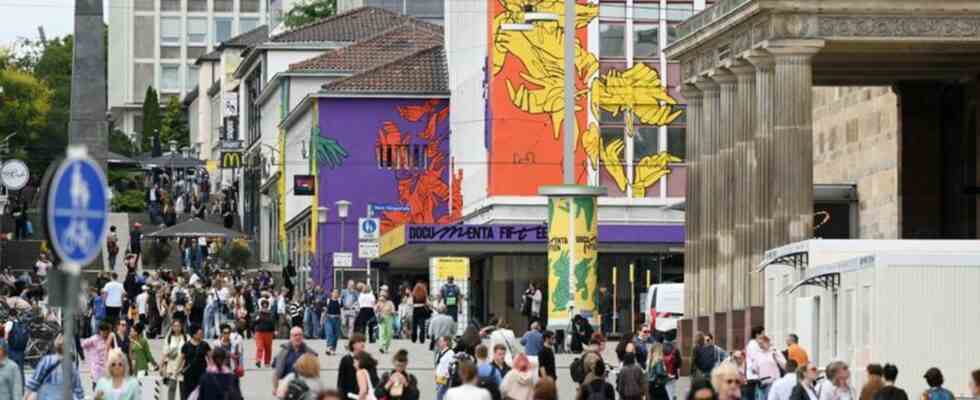kassel
documenta: Artists feel censored
The art exhibition in Kassel has been criticized for an anti-Semitism scandal. Photo: Uwe Zucchi/dpa
© dpa-infocom GmbH
The world art show continues to be criticized for its handling of the anti-Semitism scandal. Now the director-general is defending the approach – and points to concerns about not being welcome.
The general director of the documenta, Sabine Schormann, has defended the handling of the world art show with the allegations of anti-Semitism. In a statement published on the documenta homepage on Tuesday evening, she emphasized the freedom of the artistic direction and reported on her concern that she would not be welcome in Germany.
Schormann rejected the accusation that he had been inactive for too long. Since the first allegations became known in January, there have been many discussions: with the curators and artists, external experts, the supervisory board, Minister of State for Culture Claudia Roth and also the Central Council of Jews in Germany.
Curators and artists feared censorship
Even then, curators and artists “feared censorship and therefore rejected an external panel of experts,” writes Schormann. “They felt that they were under general suspicion and defamed and sometimes threatened because of their origin, their skin color, their religion or their sexual orientation. In this respect, there was already a clear defensive attitude towards interventions in art in January.»
Taring Padi’s banner with the anti-Semitic motifs was not taken down immediately because they first wanted to speak to the curators and the artists: “Removing the work from the exhibition against the will of the artistic directors and the artists would be an ultimatum Ratio has been a significant encroachment on artistic freedom.» In the meantime, the picture has also been criminally examined: lawyers have come to the conclusion that “there is no criminal liability”.
The fact that, after dismantling, there were repeated calls for external experts “with decision-making powers” to review the exhibition, “the relationship of trust with ruangrupa and the artists was enormously strained,” writes Schormann. The fact that the committee should be able to uninvite artists is understood “as (self-)censorship”. Recently, incidents with a racist and transphobic background have given “the impression that Kassel and Germany are not welcome or even endangered”.
Criticism of dealing with the anti-Semitism scandal
Most recently, the head of the Anne Frank educational institution, Meron Mendel, accused the organizers of not having reacted adequately to the anti-Semitism scandal. Mendel gave up his commitment as an external expert and accused the documenta management of “playing for time”. Schormann now contradicted Mendel publicly: “Various representations” of Mendel in interviews “could not be understood by us”: One was always available, the tasks were clearly communicated.
Schormann concluded that the documenta was “not a show of nations or art, but rather presented “future-oriented concepts”. «This is possible because the artistic freedom of the respective artistic direction and the participating artists has been guaranteed for decades. The reputation of the documenta as the most important art exhibition in the world is based on this.”

